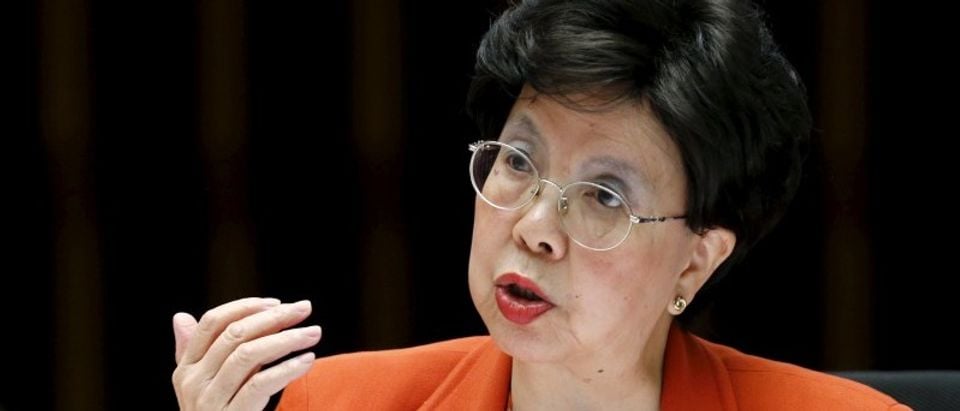The leader of the World Health Organization (WHO) attacked fossil fuels, tobacco, and “unhealthy foods and beverages” in a polarizing speech to open the largest global health summit in history Monday.
Margaret Chan, the director-general of the United Nation’s public health agency, used her platform as the lead-off speaker at the World Health Assembly to set a big government, anti-free market tone, calling for dramatic action to address global warming, demanding countries enact harsher legislation aimed at people who choose to consume tobacco, and pleading for governments to stop making people pay for medical assistance.
Speaking to cabinet-level health officials from nearly every country on Earth, Chan largely ignored the Zika virus, AIDS, malaria and other global killers during her speech on Monday in Geneva, saying “the global health landscape is being shaped” by climate change and noncommunicable diseases, such as obesity.
Chan criticized governments for “policies that place economic interests above concerns about the well-being of human lives and the planet that sustains them.”
In her remarks, Chan argued that free healthcare should be available to everyone. “User fees punish the poor,” the WHO head said of paying for healthcare services. “User fees discourage people from seeking care.”
She offered world health leaders no recommendation about how to obtain the revenue necessary to remove all direct healthcare costs for consumers while maintaining quality, paying healthcare professionals fairly, and preventing rationing as a result of overutilization of services.
David Williams, the president of the D.C.-based Taxpayers Protection Alliance, was unimpressed by Chan’s agenda.
“Here we go again,” laughed Williams. “The taxpayer-funded World Health Organization misses the mark, as usual. Instead of focusing on real and immediate concerns such as Zika and Ebola, Margaret Chan continues her relentless assaults on capitalism, cheap food, tobacco, climate change, and common sense.”
Later in her speech, Chan urged global policymakers to take steps against “highly processed foods that are cheap, convenient and tasty,” even though, by the UN’s own admission, an increase in inexpensive, calorie-rich foods have helped global hunger fall 55 percent in the past 25 years.
“That’s the difference between her view of the world and mine,” Williams said of Chan, “She apparently would rather children starve than get too much food.”
The World Health Assembly continues through Saturday.
On the meeting’s agenda for Tuesday are at least three sessions that address the impacts of global warming on public health. A discussion about preventing alcohol marketing on the Internet is on tap for Thursday.












